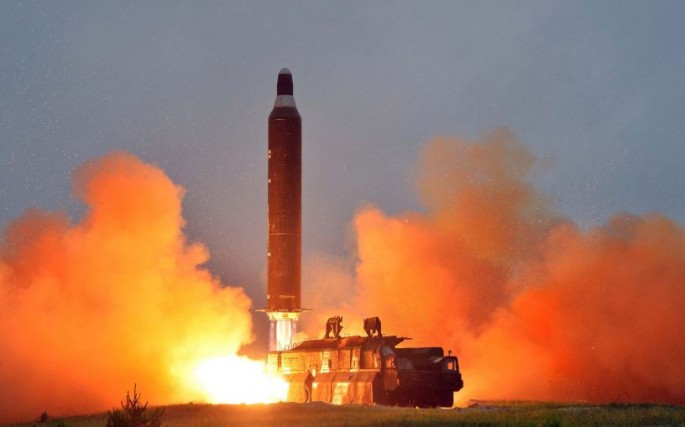A war pitting the United States and its ally South Korea against North Korea won't be contained to the Korean peninsula, and might go nuclear as North Korea struggles to stave-off defeat.
Chairman of the United States Joint Chiefs of Staff Gen. Joseph "Fighting Joe" Dunford, the highest ranking officer in the Armed Forces of the United States, asserts this war against the north will also threaten American allies and the U.S. homeland.
"There was a time, not long ago, when we planned for a conflict that might be contained to the peninsula," wrote Gen. Dunford in Joint Forces Quarterly, a publication of the National Defense University.
"But today, North Korea's intercontinental ballistic missile, cyber, and space capabilities could quickly threaten the homeland and our allies in the Asia-Pacific region."
North Korea began 2017 with its deranged leader, Kim Jong-un, saying his country was making final preparations to conduct its first test of an intercontinental ballistic missile (ICBM) this year. North Korea has never designed and flown an ICBM.
The announcement means North Korea will soon have the means to attack American allies in Asia and the American homeland next with nuclear ICBMs.
From 2006 to 2016, North Korea conducted five nuclear tests and more than 20 ballistic missile tests in 2016 alone.
"We have reached the final stage in preparations to test-launch an intercontinental ballistic rocket," Kim said in an address to the North Korean people on Jan. 1. "Research and development of cutting edge arms equipment is actively progressing."
Also of concern to the U.S. is North Korea cyber warfare specialists and a fledgling space program being used to deliver weapons from space.
"Those capability developments, combined with an unpredictable and an irresponsible regime, certainly have our attention," said Gen. Dunford.
"A conflict breaking out on the Korean Peninsula likely would expand beyond that region. Missile technology would immediately threaten neighboring nations and cyber capabilities could threaten the globe."
"Deterring and, if necessary, defeating a threat from North Korea requires the Joint Force to be capable of nearly instant integration across regions, domains, and functions," argued Gen. Dunford.
"This means more than just fielding cutting-edge technologies that ensure a competitive advantage across all domains -- something we must continue to do. Keeping pace with the speed of war means changing the way we approach challenges, build strategy, make decisions, and develop leaders."



























